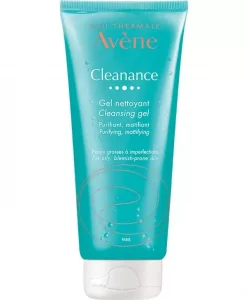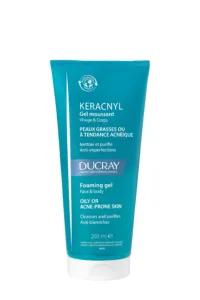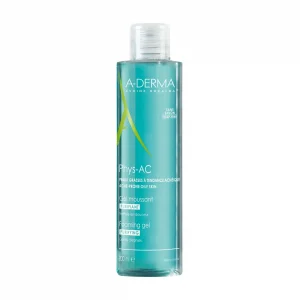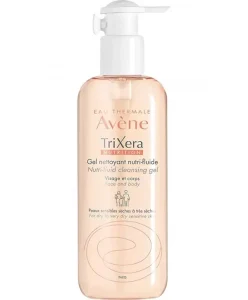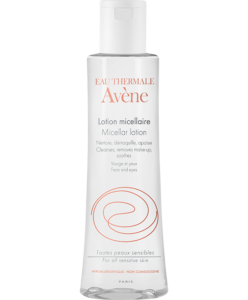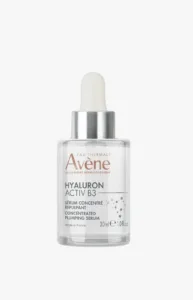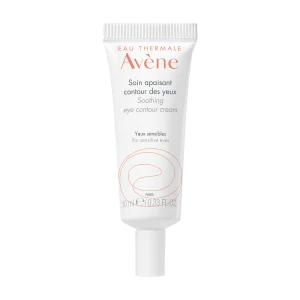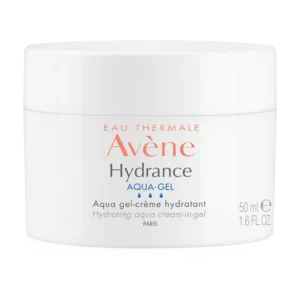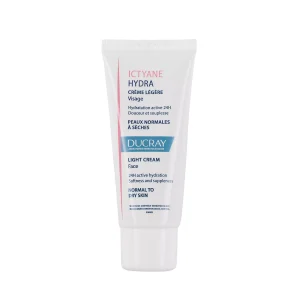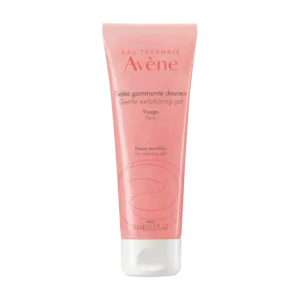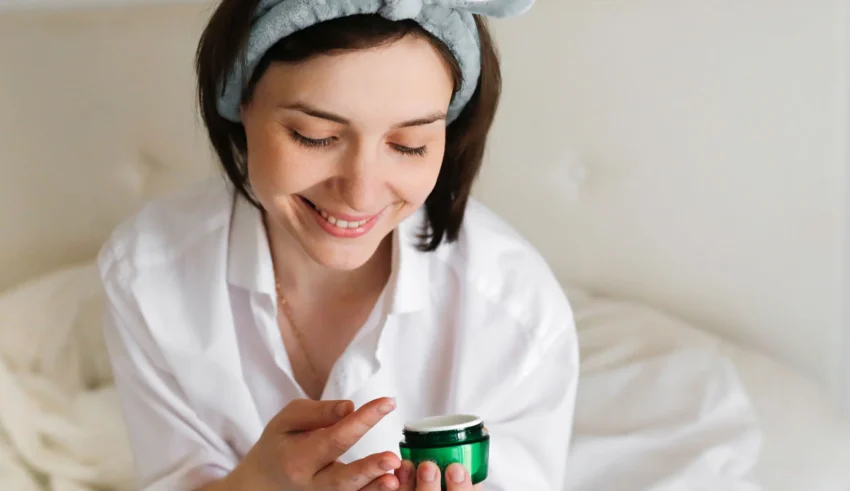
It’s no secret that a night skincare routine is essential for healthy, radiant skin. But what exactly do we need to do? We all want to have confidence in our skin and feel like we fit in. This article, written in collaboration with the dermatologist Dr. Reem Hanna, outlines the ideal nighttime skincare routine, from start to finish, to ensure your skin gets all the attention it deserves.
Why is it essential to have a dedicated evening skincare routine?
According to Dr. Reem Hanna, an evening skincare routine is essential to cleanse, repair and hydrate your skin after a day of exposure to various environmental stressors. It differs from the morning routine by focusing more on treatment and hydration than on protection and light products. Adopting a consistent evening skincare routine can significantly improve your skin’s overall health and appearance.
“As a dermatologist, I can say that nighttime skincare products and rituals are essential for promoting skin health and rejuvenation,” notes Dr. Reem Hanna.
She lists the specific benefits:
- Increased absorption and efficacy
- Skin repair and regeneration
- Hydration and water retention
- Targeted treatments
- Protection against environmental stressors
- Overall skin health and appearance
What’s the ideal night-time skincare routine for a well-rested appearance?
Step 1: Deep cleanse!
This step is particularly vital in the evening to remove make-up (if you’re wearing any) as well as dirt and sebum accumulated throughout the day. If you go to sleep without removing your make-up or cleansing your skin properly, you risk waking up with dull, dry skin.
To save you time, here’s a roundup of the best facial cleansers for every skin type:
For oily and acne-prone skin:
Eau Thermale Avène Cleanance Cleansing Gel
Ducray Keracnyl Foaming Gel
A-Derma Phys-AC Foaming Gel
For dry skin:
Eau Thermale Avène TriXéra Nutrition Nutri-Fluid Cleansing Gel
For normal skin:
Eau Thermale Avène Micellar Lotion
Step 2: Treat your skin problems with a serum.
How necessary is a serum as part of a night-time skincare routine? As it turns out, it’s very necessary. Often overlooked in skincare routines, the serum does the heavy lifting. Serums are ultra-concentrated treatments that deliver an influx of rich, skin-benefiting nutrients. That’s why they’re best applied to a clean, bare face.
Adapt this step and choose a serum according to your skin concerns. If you’re looking for anti-aging action, your evening skincare routine is the ideal opportunity. Opt for a regenerating serum that will help your skin regenerate naturally.
Our pick:
Eau Thermale Avène Hyaluron Activ B3 Concentrated Plumping Serum
Step 3: Apply retinol.
Retinoids and retinol (a type of retinoid) are vitamin A derivatives that help treat acne and fine lines. Dr. Reem Hanna explains that these ingredients stimulate cell renewal, promote collagen production and help improve pigmentation.
Retinol and other retinoid-based treatments make the skin sensitive to the sun and should always be used in the evening. If you’re new to retinol, it can be irritating, so apply a small amount every other night.
Step 4: Apply eye contour cream.
Applying a night eye cream to the delicate eye area helps to further hydrate the skin, repairing it and reducing fine lines. This is an optional step in the evening, but ideal as part of an anti-aging skin care routine for all skin types.
Our pick:
Eau Thermale Avène Soothing Eye Contour Cream
Step 5: Moisturize or apply a night cream.
Moisturizing is one of the most important steps in your night skincare routine and should never be omitted. After treating your skin with active ingredients and serums, you need to moisturize it so that it retains all its benefits. Moisturizing creates a barrier on the skin’s surface that protects it from the elements and gives it a fresh, healthy appearance.
You can moisturize your skin at night with your usual moisturizer or apply a thicker night cream. Night creams promote skin repair during the night and have a thicker consistency than your usual moisturizer. In any case, it’s essential to moisturize your skin at night to help it regain the moisture and hydration lost during the day.
Here are the creams that will help you wake up with glowing, hydrated skin, ready to face the day.
Eau Thermale Avène Hydrance Aqua-Gel
Ducray Ictyane Hydra Light Face Cream
Step 6: Use a face mask.
Once you’ve completed your overnight skincare routine, it’s time to move on to the next step. Applying a face mask can help reinforce the effects of all your previous efforts.
You don’t have to use a mask every night – once or twice a week is enough – but when you do, make sure you use a mask suited to your skin type and needs. If you’re looking for hydration, choose a moisturizing mask; if you want brighter skin, opt for a mask containing brightening or exfoliating ingredients.
The mask should be applied after cleansing and before moisturizing. Leave it on for 10 to 15 minutes, then rinse with lukewarm water and pat dry with a clean towel. Once you’ve completed this step, you’re ready to finish your routine by applying your favorite moisturizer.
Our pick:
Eau Thermale Avène Gentle Exfoliating Gel
Step 7: Get a good night’s sleep!
It may be easier said than done, but sleeping between 7 and 9 hours a night will help your skin regenerate faster. You’ll be amazed at how much a good night’s sleep and the use of suitable night products can do wonders for your skin!
Dr. Reem Hanna points out that for people who are new to skincare or don’t know where to start, it can be easy to establish a simple but effective evening routine. Here are the essential steps: use a cleanser, apply a retinoid and finally moisturize!
What’s your skin type?
Determining your skin type can help you create the evening skincare routine best suited to your skin’s needs. The main skin types are: normal, dry, oily, combination and sensitive. Here’s how to identify your skin type:
- Normal: The skin’s sebum and moisture levels are balanced, and the skin is neither dry nor oily. Skin is not acne-prone or sensitive to products.
- Dry: The skin barrier lacks moisture and water, resulting in rough, flaky or itchy skin.
- Oily: Pores produce excess sebum, making skin shiny and oily. Skin is prone to acne breakouts due to clogged pores.
- Combination: Skin is both oily and dry, with oily skin on the T-zone and dry skin on the cheeks.
- Sensitive: Skin is easily irritated due to skin barrier problems, climate or products. The result is itching and redness, which can lead to stinging or burning after applying products.
A brief overview
Skin care isn’t something you do when you think about it – it has to be part of your daily and nightly routine. The skin is your body’s largest organ, and it undergoes many aggressions throughout the day. To wake up looking and feeling refreshed, use what you’ve learned here to develop a personalized nighttime skincare routine and start using it every night. You’ll be amazed by the results!
